Dr. K's Crypto-Corner
by Dr. Chris Kacher
Riding the Revolutionary Rocket with Cryptotechnologies... Entirely Evolutionary™
U.S. - China Trade Wars
The trade war between the U.S. and China continues to escalate as the emerging superpower China attempts to break out of its box against the world's existing super power, the United States. Peaceful coexistence is less likely as superpowers always seek economic, technological and military supremacy. Russia once attempted this but the destruction of its economy due to socialist, communist, and totalitarian economics carried a massive price. As a consequence, Russia is a shell of its former self. We can only hope that either something similar happens to China or somehow, the core of totalitarianism is defeated. As I've written, blockchain could be an important catalyst as it could be instrumental in decentralizing power structures over the next decade.
China's anti-stance towards bitcoin and blockchain technology as well as their totalitarian regime who seeks to control its citizens indeed may render China impotent in the coming years. Despite their fast progress due to pockets of capitalistic strategy, the beating heart of its government remains communist. China is busy laying the foundation as it builds the infrastructure for its Empire around the world. The One Belt Road and deep sea ports are key pieces as they form the basis of a hoped for future Chinese military empire. History shows the British Empire did similar as it went from a series of trading companies to outright colonialism which is simply the theft of territory.
A peaceful resolution is becoming increasingly unlikely given the fundamentals at work of an emerging Super Power seek to displace the existing Super Power. Military conflict between the two powers may occur. China's military spending, while about one-third that of the U.S., cannot be ignored as shown in the table below: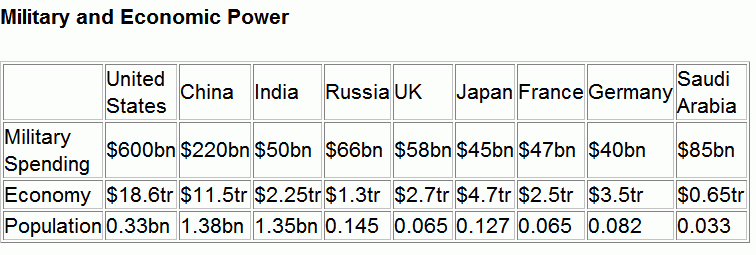 *Table courtesy of Market Oracle.
*Table courtesy of Market Oracle.China A Major Contender
The key is always in the speed of growth. Long term trends show China has been catching up to the U.S. economically, and some investment banks including Goldman Sachs as well as McKinsey & Co. have published reports on how China will become the world's superpower by the late 2020s, or within the next several years, based on long term trends. But Goldman has a vested interest in keeping its Chinese clients happy thus their reports are suspect while McKinsey & Co. are a shell of their former self having turned into a portal for those from top universities to pad their resume while actually having little impact on the Fortune 500 companies who pay dear to hire their services.
Still, a number of notables with impressive track records agree with the above assessments. Eric Schmidt of Google said, “It’s pretty simple. By 2020, they will have caught up. By 2025, they will be better than us. By 2030, they will dominate the industries of AI.” PricewaterhouseCoopers recently projected AI’s deployment will add $15.7 trillion to the global GDP by 2030, with China taking home $7 trillion of that total, dwarfing North America’ $3.7 trillion in gains. The renowned Peter Diamandis has said China will surpass the U.S. as the world’s largest economy with a $14 trillion GDP given their 9.6% CAGR since 1989, accounting for over an estimated 35 percent of global economic growth from 2017 to 2019 — nearly double the U.S. GDP’s predicted 18 percent.
A number of cities across China have experienced exponential rates of growth. For example, Shenzhen has grown from a population of 300,000 to 15 million in just 40 years while having registered over 3 million companies. Shenzhen, a mere fishing village in 1987, had a GDP at 0.1% of Hong Kong’s GDP, but today Shenzhen has a GDP of US$350 billion.
China leads in various technologies. Chinese mobile payments spending now exceeds the U.S. by a ratio of 50 to 1 via apps such as WeChat while Chinese video-based social networking apps such as Tik Tok are starting to have substantial competitive presence in Western markets. China has also become a dominant player in mobile phone shipments worldwide. As explained by David Li, “In 2017, Apple stood at 14%, Samsung at 15%, and [of] everybody else, almost all are Chinese companies. And with the exception of Xioami, everybody else is headquartered in Shenzhen.” This means “one city in China has 70% of the global market share of mobile phones.”
Ray Dalio of Bridgewater says China is one of the greatest economic miracles of all time based on his deep experiences in China since the 1980s and what his formidable research arm has found. Since then, per capita income increased by 26-fold, share of the world's GDP went from 2% to 22%, the poverty rate went from 88% to under 1%, and life expectancy increased by ten years.Bridgewater research is shown over the next five images. First, China's investment in leading tech has shot higher over the years to where they are often second only to the U.S. as shown below:
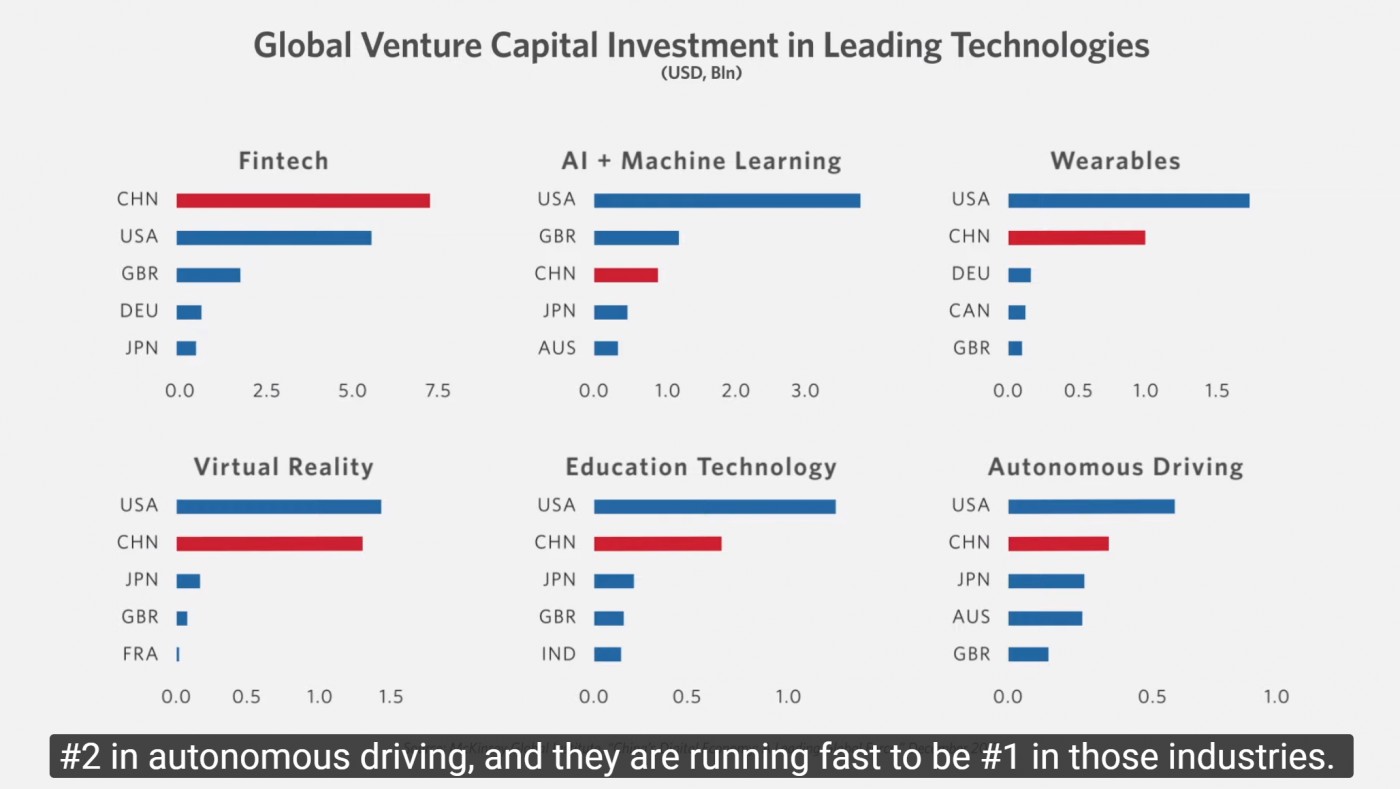
It therefore stands to reason that China is also neck-and-neck to the U.S. when it comes to share of global unicorn value as shown in the second pie chart below:
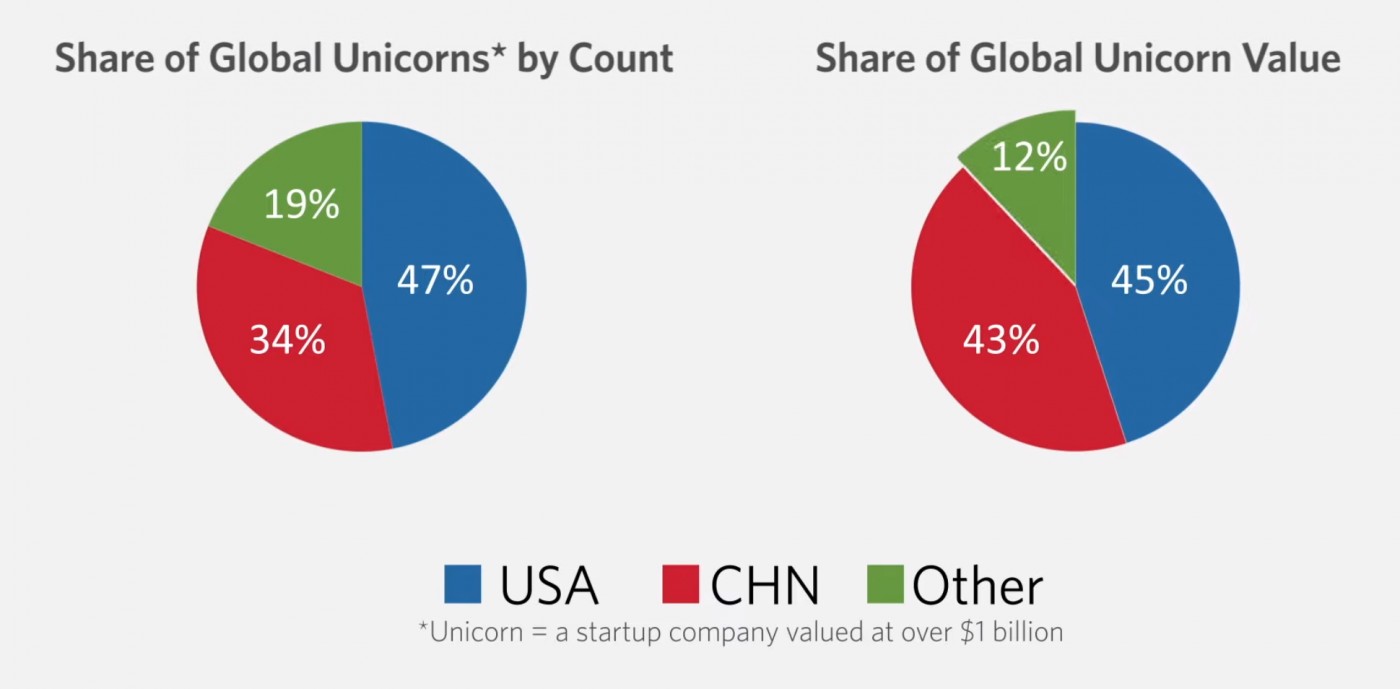
China's domestic capital market valuations have shot higher over the last 15 years which correlates with the trend in total foreign investments in Chinese assets as shown below:
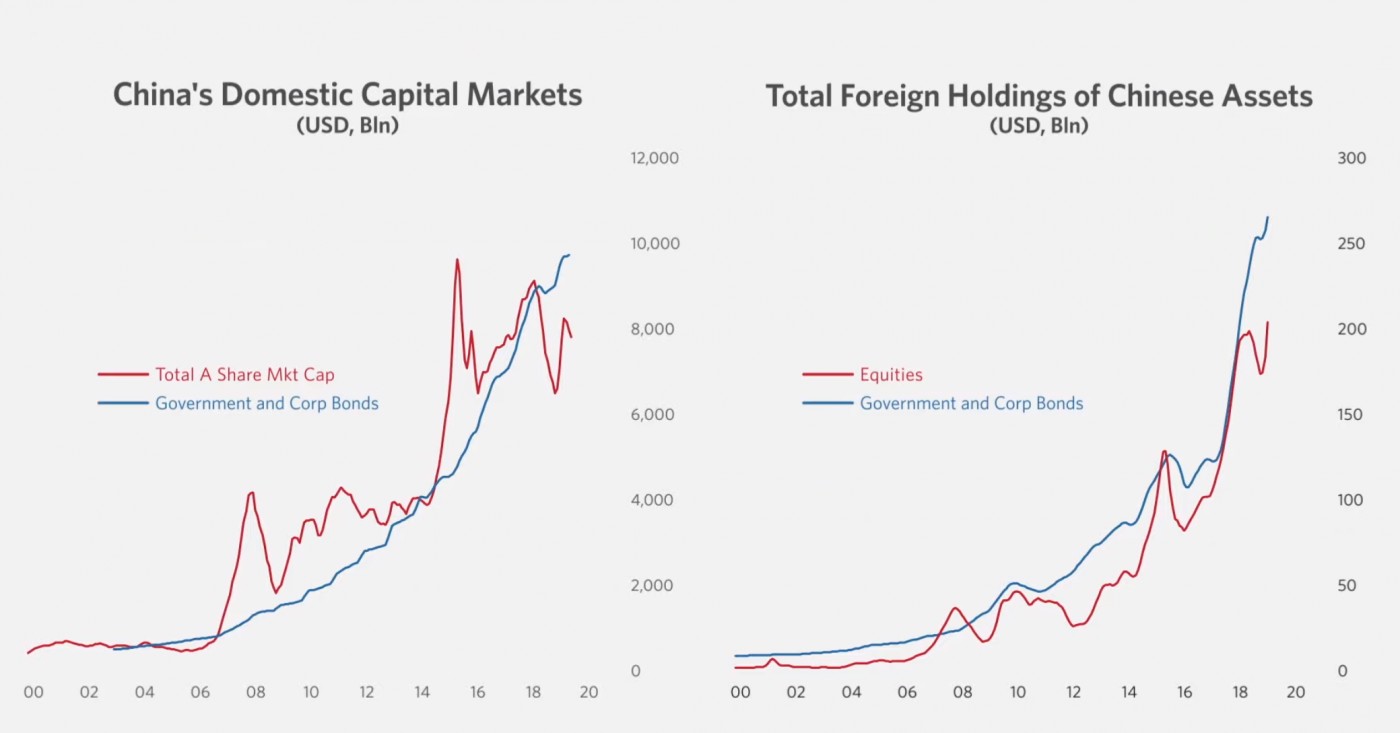
Bridgewater shows various metrics for China vs. the U.S. in the image below:
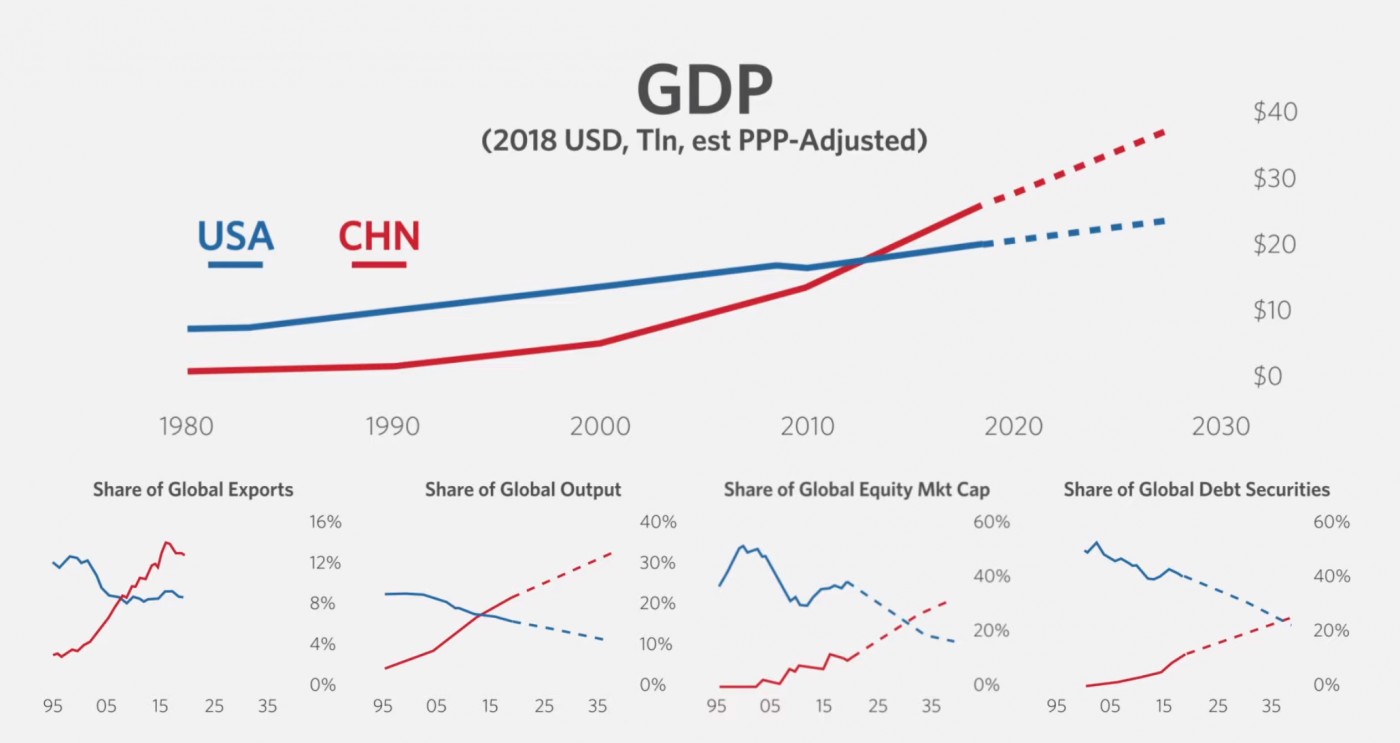
Finally, various metrics show China is the new emerging contender:
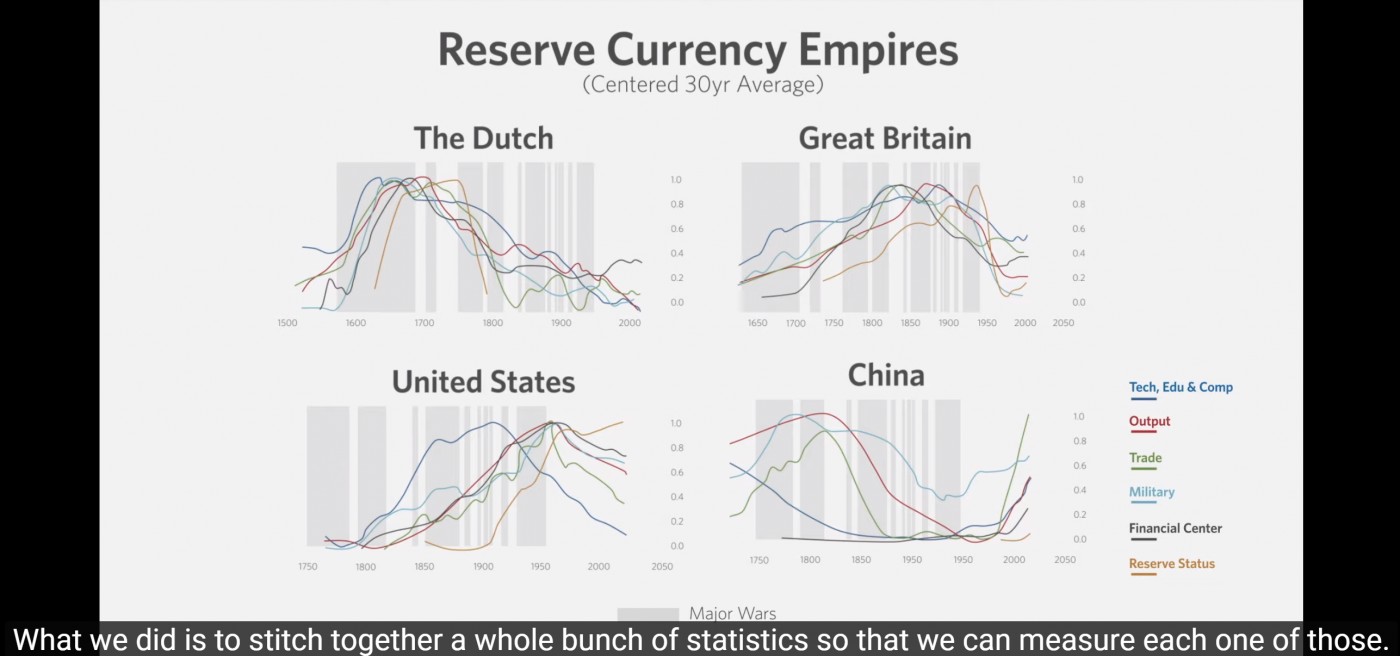
All that said, Chinese economic data is suspect so their 6.2% claim is more likely 4% or less as its GDP converges towards that of western nations. Nevertheless, with current GDP per capita of $9,000 vs. the $60,000 in the U.S., there is much headroom for growth even under their corrupt communist dictatorship. China's population is more than 4 times that of the U.S. making for many heads and hands to contribute.
But the current trade war between the U.S. and China may serve to derail China's rate of growth. Certainly, the U.S. trounces China when it comes to stock market performance:
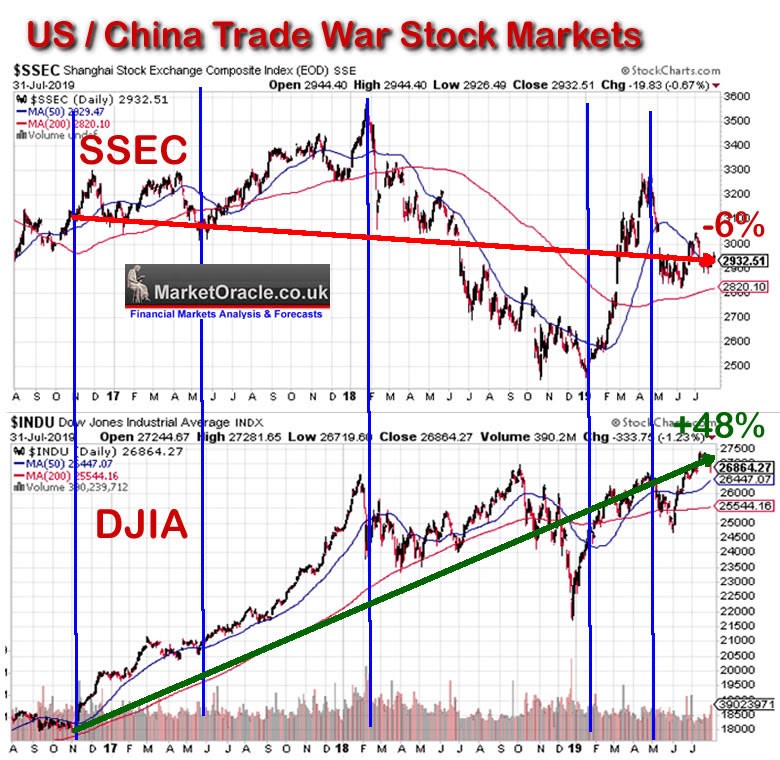
China's bellwether Shanghai Stock Exchange (SSEC) has been in a bear market since it peaked at 5178 in June 2015 while the U.S. continues its bull run:
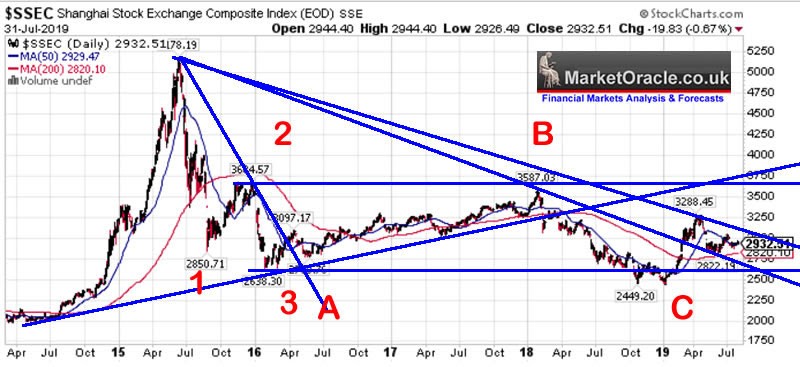
*Charts courtesy of stockcharts.com
QE capital would rather buy U.S. stocks with which corporations can then buy back their shares thus further boosting earnings. Indeed, corporate buybacks are at all-time highs.
The Chinese Mafia et al
China is great at copying / stealing western technology. They however are still behind in innovation as their mafia government controls thought, which is the opposite of freedom of thought. China's government today is no different in spirit than when Mao ruled China. The hope for China is either a replacement of its current leader as there has been notable dissent brewing among the top Chinese brass, or perhaps even revolution by the people for the people. Blockchain, the beating heart of bitcoin, can facilitate this by reducing tax revenues Chinese pay to the government. That said, historically, an outright revolution in such circumstances has been key to a quantum level of change as dictatorial governments are overthrown.
But blockchain technology did not exist prior to 2009. While distributed ledger technology of which blockchain is a subset did exist, nothing decentralized such as bitcoin which enables freedom of value transfer across borders existed. A replacement of current leadership with something more along the lines of what happened in Russia when Gorbachev took over could also occur. The John Batchelor podcast has dug into this possibility.
Russia and the developed Muslim world are also infested with their own dictatorships that act as a cap on innovation thus restrict development. While not nearly as extreme by any means, other Western nations have their own limiting issues that seek to restrict freedom of expression and innovation. The catastrophic Prime Minister Theresa May kept the U.K. stagnant for the past 3 years though the corruption is deep-seated as numerous rights crippling laws currently being enforced have only accelerated since the financial collapse of 2008. Earlier this decade, the Queen of England overrode former prime minister David Cameron's refusal to privatize the prison system. Existing laws only help to escalate the multi-billion dollar business that is the U.K.'s prison system. The newly elected Boris Johnson is now desperately attempting to correct the extensive damage done to the nation.
In any event, Chinese corporations cannot compete against western corporations on a level playing field so they steal western technology as sanctioned by the state.
Every new tariff set by the Trump administration could be answered by further currency devaluation by the PBOC. This is part of the mega-trend that cannot be overestimated. Bitcoin and precious metals are major assets profiting from this development, all key to the store-of-value narrative.- Bitcoin Price Action
- Bitcoin has corrected from peak-to-trough -32.5% in this latest pullback which may very well be over. This is in line with historical corrections during bitcoin bull markets which run typically between -30% to -42%. Last month, after Facebook made its Libra digital currency announcement, Trump tweeted, “I am not a fan of Bitcoin and other Cryptocurrencies, which are not money, and whose value is highly volatile and based on thin air.” He added, “Unregulated Crypto Assets can facilitate unlawful behavior.” This is typical of "old guard" thinking including Warren Buffet and Nouriel Roubini who still don't understand the immense and vast power that underlies blockchain technology. But then, Roubini had no clue about cellular technology in 1991 when he testified against the technology at a Senate hearing.
- As I have been saying since 2013 which ruffled the UK's feathers [understatement!], cryptocurrencies could be a “very important part going forward, particularly in this global populist revolt,” says Steve Bannon, the former White House chief strategist. Bannon says that governments and banks want to “stay with fiat currency” so it’s no surprise they want to regulate crypto coins. “I think what people need to confront now and people start looking at, is how the Chinese and Third World countries in sub-Saharan Africa, in South Asia and I think potentially in South America, are starting to put these payment systems in that are going to kind of give them, try to give them, global dominance and be able to get off the reserve currency of the dollar,” Bannon said.
Fiat Devaluations Possible
It happened in the 1930s during the Great Depression, so why couldn't it happen today? Ray Dalio has predicted such will come to pass within the next few years. In the 1930s, the Fed was aggressively easing while the government broke the link to gold which was the equivalent of an overnight tax of 41% as the price of gold was artificially moved from $20.67 to $35, thus devaluing the dollar by more than 40%. Massive money printing pushed interest rates down to 0% as shown below:
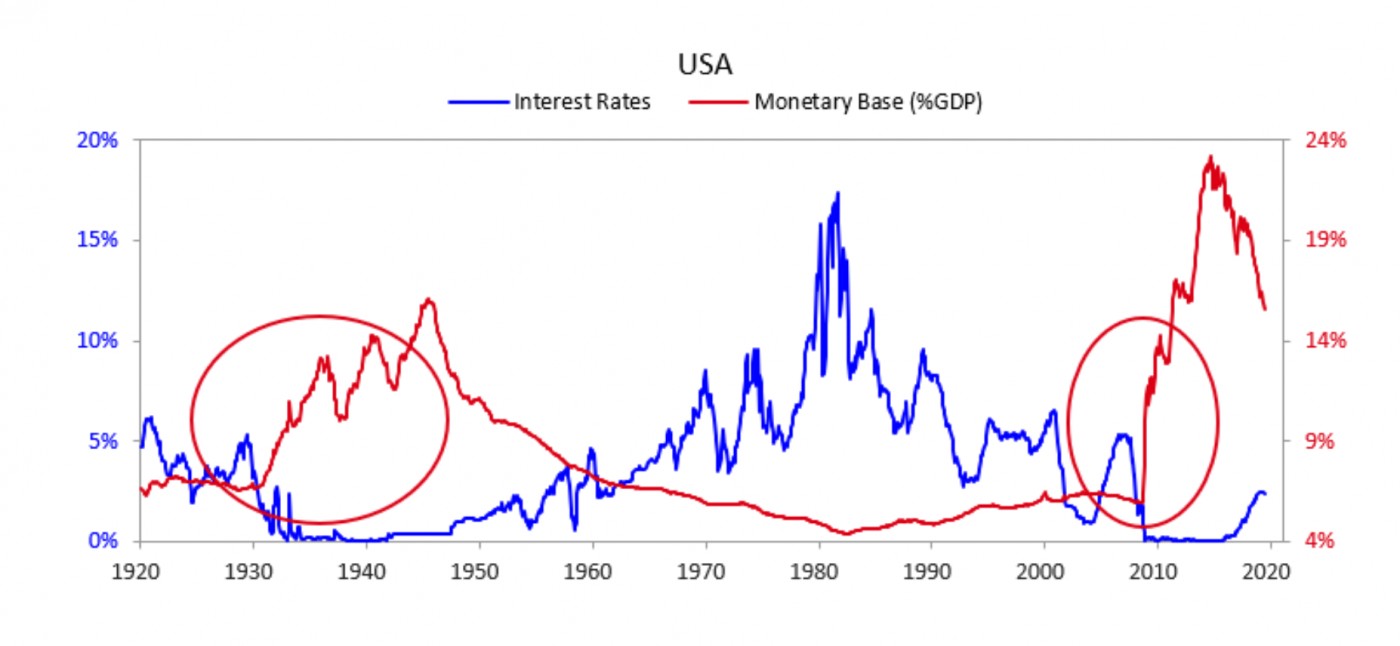 He says the global populist revolt brewing in today's world is at a level which can be compared with the 1930s. Easy money caused hard assets to rise in price which widened the wealth gap. A conflict between socialists/leftists and capitalists/rightists emerged which pushed the rise of populism and nationalism around the planet. Then in 1937, the Fed turned hawkish tightening monetary policy which pushed the stock market and the economy over the edge, causing major averages to lose about half their value.
He says the global populist revolt brewing in today's world is at a level which can be compared with the 1930s. Easy money caused hard assets to rise in price which widened the wealth gap. A conflict between socialists/leftists and capitalists/rightists emerged which pushed the rise of populism and nationalism around the planet. Then in 1937, the Fed turned hawkish tightening monetary policy which pushed the stock market and the economy over the edge, causing major averages to lose about half their value.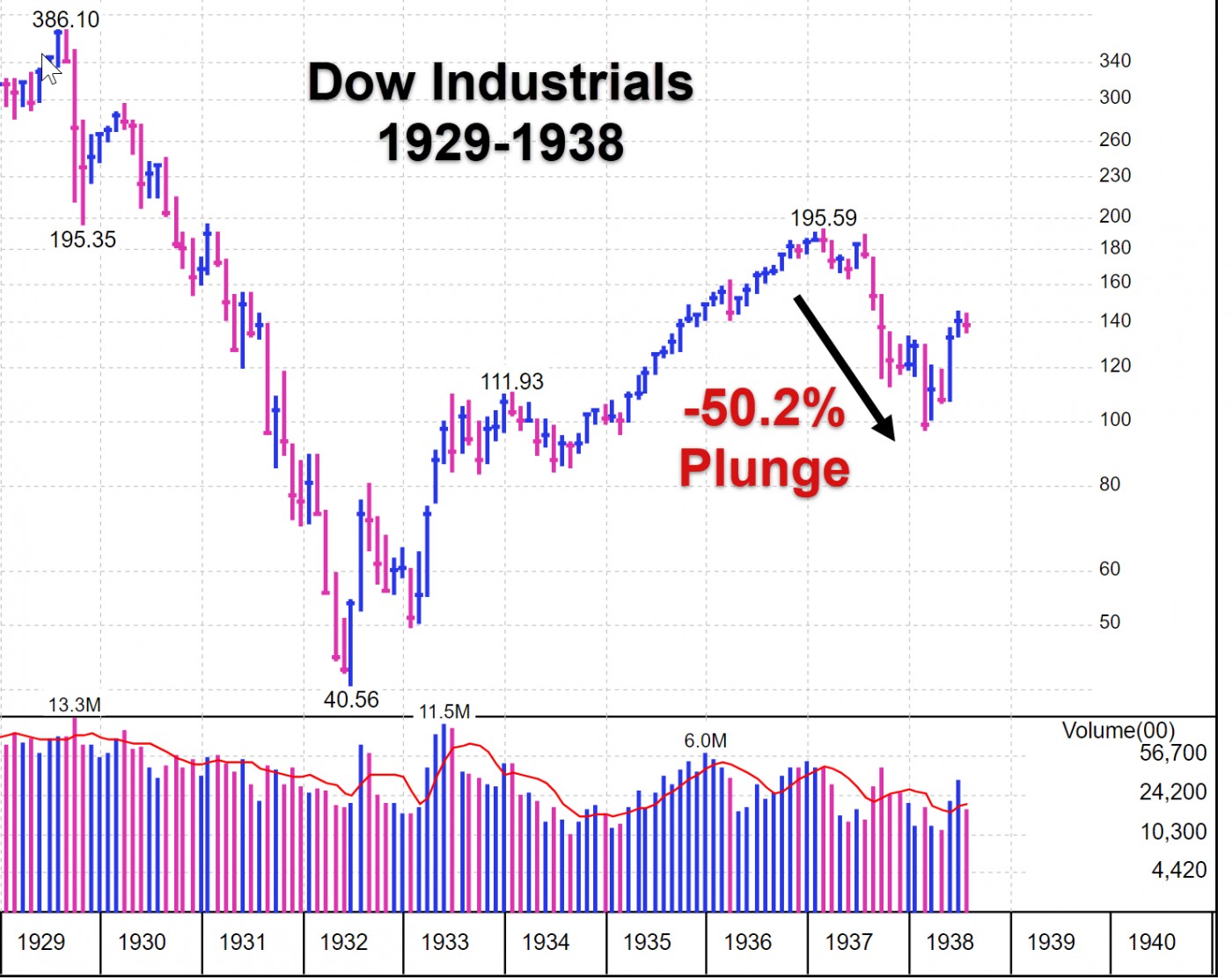
Meanwhile, major tensions between the emerging Axis countries that comprised Germany, Italy, and Japan and the established Allied countries including the UK, France, and China intensified. World War II broke out in Europe in 1939 with the U.S. entering in 1941 after the Japanese bombed Pearl Harbor.
The massive debt generated in the 1930s via fiscal stimulus was mostly handled via defaults, guarantees, and the monetization of debt. Seems that, while not repeating, we are rhyming quite nicely with the 1930s. Given this, markets should continue to trend higher overall until the Fed has no choice but to start hiking rates. Though if history is any guide, they will not hike aggressively as they did in 1937 which burst the bubble. More likely, they will keep lowering rates or holding them at record lows, spurring a major devaluation of the U.S. dollar among other fiat currencies. This would send the price of hard assets shooting higher as more fiat would be required to buy real estate, stocks, bonds, precious metals, and collectibles.
The Hope
That said, the U.S. still has headroom with respect to the possibility of boosting its GDP growth due to lower taxes, increased tax revenues as a consequence, low inflation, and exponential growth technologies including technological automation and AI all of which have served to boost profit margins as wage growth is kept down. GDP growth is priced to remain moderately strong while inflation is priced to remain low. Of course, nothing is guaranteed, and it would be a historical first. But then, the broad spectrum of such exponential technologies did not exist in prior cycles. Stay tuned.
